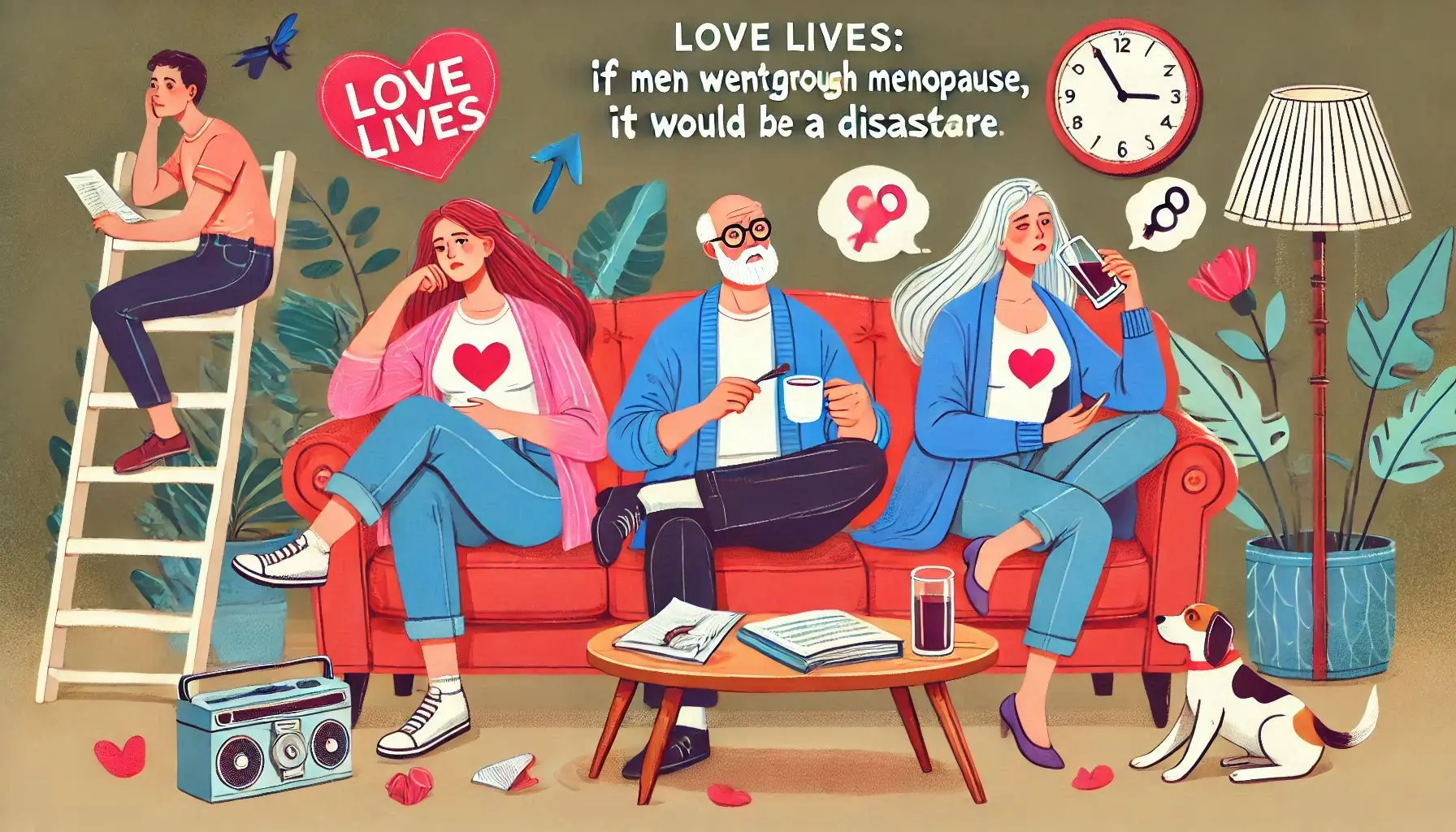Menopause is a well-known and often discussed phase in a woman’s life, characterized by hormonal changes that can bring a range of physical and emotional challenges. But what if men experienced a similar phenomenon? Would the world as we know it change drastically? Let’s explore how the concept of male menopause, often referred to as andropause, could impact relationships, society, and the very fabric of love and intimacy.
Understanding Male Menopause
While menopause in women is a well-defined process marked by the cessation of menstruation and a significant drop in estrogen levels, andropause refers to a gradual decline in testosterone levels in men as they age. This decline can lead to various symptoms, including fatigue, mood swings, decreased libido, and changes in body composition. However, unlike menopause, andropause does not have a clear endpoint, and many men may not even recognize the symptoms or connect them to hormonal changes.
The Relationship Dynamics
1. Emotional Impact
If men were to experience menopause in a way similar to women, the emotional upheaval could be profound. Hormonal fluctuations can lead to irritability, anxiety, and depression, impacting relationships. Communication is key in any relationship, and if men were unable to articulate their feelings during this time, misunderstandings could arise, leading to conflicts.
Imagine a scenario where a man going through andropause struggles with his emotional state but finds it difficult to express his feelings to his partner. This could create a rift, as partners may feel rejected or confused. On the other hand, if men embraced open conversations about their emotional struggles, it could foster deeper intimacy and connection.
2. Changes in Libido
Libido changes are a significant aspect of menopause. For women, decreased libido can create challenges in sexual relationships, often leading to feelings of inadequacy or frustration. If men experienced similar shifts in desire, the dynamics of sexual relationships could shift dramatically.
In heterosexual relationships, this could lead to a power imbalance, as traditionally, men are often expected to be the more sexual partner. If men began to experience decreased libido, it could challenge societal norms and expectations. Couples might need to navigate these changes together, fostering a new understanding of intimacy and sexual fulfillment.
Societal Implications
1. Stigma and Support
Currently, there is less awareness and discussion around andropause compared to menopause. If society recognized male menopause as a significant life stage, it might lead to greater understanding and support for men experiencing these changes. Support groups, educational resources, and open discussions could help men feel less isolated.
If the societal stigma surrounding male emotionality and vulnerability were to diminish, men might be more willing to seek help and support. This could lead to a healthier approach to mental health for men, as well as improved relationships with their partners.
2. Evolving Gender Roles
The concept of male menopause could challenge traditional gender roles. As men navigate their emotional and physical changes, the expectation that they must always be the “strong” partner might shift. This could lead to more egalitarian relationships, where both partners support each other through the ups and downs of life.
Such a shift could also encourage women to embrace their own emotional journeys during menopause without feeling the burden of being the primary caretaker. Instead, relationships could evolve into partnerships based on mutual support and understanding.
Navigating Intimacy
1. Redefining Intimacy
As men experience hormonal changes, intimacy may need to be redefined. Sexual intimacy is just one aspect of a relationship; emotional and physical closeness can take many forms. Couples might explore new ways to connect, focusing on shared experiences and emotional support rather than solely physical intimacy.
This could open doors to deeper conversations about desires, needs, and expectations, ultimately enhancing the bond between partners. Redefining intimacy could lead to more fulfilling relationships, as couples learn to adapt and grow together.
2. Communication is Key
If men went through a menopause-like experience, communication would be essential. Open dialogue about feelings, changes in libido, and emotional well-being could strengthen the relationship. Partners would need to practice empathy and patience, recognizing that both individuals are navigating their own journeys.
Establishing a safe space for discussions about fears and uncertainties can help couples build resilience and maintain intimacy despite challenges. This foundation of trust and openness could enhance love lives and create lasting connections.
Conclusion
While male menopause may not exist in the same defined manner as female menopause, the concept raises important questions about emotional health, relationship dynamics, and societal expectations. If men were to experience significant hormonal changes, the repercussions could be profound, affecting love lives, intimacy, and emotional connections.
However, navigating these challenges could also lead to healthier relationships and a greater understanding of each partner’s needs. By fostering open communication and redefining intimacy, couples can emerge stronger, creating a love that thrives amidst life’s inevitable changes. As we continue to explore the complexities of gender and aging, embracing these conversations will be vital for nurturing enduring love and connection.
